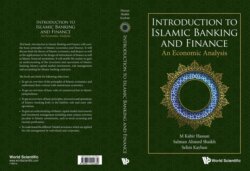Читать книгу Introduction to Islamic Banking and Finance - M Kabir Hassan - Страница 18
На сайте Литреса книга снята с продажи.
1.1.8Islamic insurance
ОглавлениеTakaful is an Islamic substitute for conventional insurance. The conventional insurance includes the element of interest-based investments as well as resemblance to gambling since the payoffs are contingent on some future probabilistic events. Takaful avoids the element of interest by only resorting to investments that are permissible in Islamic law and which avoid Riba (interest), Maysir (gambling), and Gharar (uncertainty). Rather than paying premiums to a company, the clients contribute voluntary donations (Tabarru) in a pool of funds in Takaful. This pool of funds is managed by a Takaful operator or managing firm. In practice, if the Takaful operator only works as an investment agent and to process claims on behalf of all clients, then the agency (Wakalah) model is used to organize and structure the Takaful. On the contrary, if the Takaful operator not only works as an investment agent and to process claims on behalf of all clients as an agent but also as a partner, then the Mudarabah model is used to organize and structure the Takaful. In the Mudarabah model, the compensation to the Takaful operator is primarily based on the performance of investments. On the contrary, in the Wakalah model, the compensation to the Takaful operator is fee based.
In global Islamic finance assets, the share of Takaful is 2%. With a CAGR of 6%, Takaful assets have grown from $31 billion to $46 billion in 2017 as compared to 2012. Globally, there are 322 Takaful operators working in 47 countries.
Table 1.5. The distinction of Waqf from other social finance institutions.
